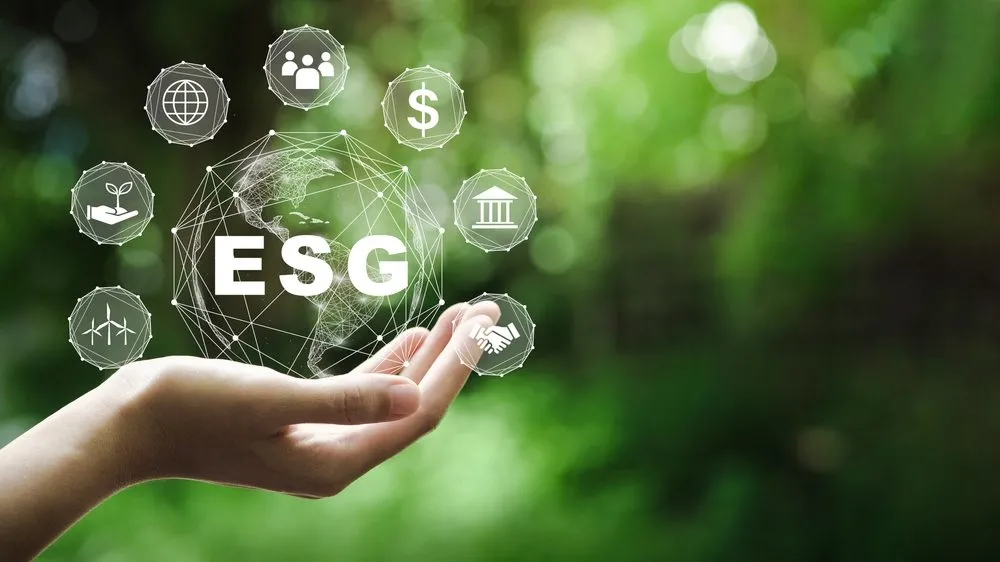
What’s New with I-RECs in 2026: What Businesses Need to Know Now?
For businesses in the UAE, particularly those with international supply chains, export exposure, or ESG-linked financing, the I-REC landscape in 2026

As the world grapples with the urgent need to address climate change, the concept of green financing has gained significant traction. But what is green financing, and why is it becoming a cornerstone of modern economic strategies? Green financing involves the allocation of capital to projects and initiatives that promote environmental sustainability, helping to reduce greenhouse gas emissions and support the transition to a low-carbon economy. This article explores the green financing definition, its types, benefits, and its growing relevance in today’s financial landscape.
At IFRSLAB, we are committed to providing ESG solutions that help businesses in the UAE and beyond navigate the complexities of sustainable finance. Our goal is to establish ourselves as a trusted partner in the journey towards a greener, more sustainable future.
Green financing refers to the process of directing financial investments toward projects and initiatives that have a positive environmental impact. This includes funding for renewable energy projects, sustainable agriculture, energy-efficient buildings, and more. The core idea behind green financing is to support activities that contribute to environmental conservation, reduce carbon footprints, and foster sustainable development.
As the risks associated with environmentally harmful products and practices continue to rise, green financing is becoming increasingly mainstream. It offers a pathway for businesses and investors to align their financial goals with environmental responsibility, making it a critical component of the global effort to combat climate change.
Understanding the types of green financing available is essential for businesses and investors looking to make environmentally responsible choices. Below are some of the most common forms of green financing:
Green bonds are a significant category within green financing. These bonds are issued by governments, corporations, or other organizations to fund projects that have a positive environmental impact. The proceeds from green bonds are typically used to finance renewable energy projects, energy efficiency improvements, clean transportation initiatives, and more. Green bonds and financing are critical tools in mobilizing capital for sustainable development.
Green mortgages are loans offered to homebuyers purchasing properties with high environmental sustainability ratings or those who plan to invest in improving a property’s environmental performance. These mortgages often come with favorable terms, such as lower interest rates, to incentivize the adoption of sustainable practices in the housing market.
Green loans are designed to support specific environmental projects, such as installing solar panels, purchasing electric vehicles, or improving energy efficiency in buildings. These loans are tailored to fund activities that contribute to a reduction in carbon emissions and promote sustainability.
Green credit cards offer consumers the opportunity to support environmental initiatives through their everyday spending. For example, some green credit cards contribute to environmental projects, such as tree planting, for every purchase made by the cardholder. These credit cards allow consumers to make a positive environmental impact while managing their finances.
Green banks operate similarly to traditional banks but focus exclusively on financing environmentally friendly projects. These institutions use public funds to attract private investment in renewable energy and other sustainable ventures. Green banks are becoming increasingly important players in the global green financing landscape, helping to bridge the gap between public policy goals and private sector investment.
The benefits of green financing extend far beyond environmental impact. Here are some of the key advantages that businesses and investors can gain from adopting sustainable financing practices:
Green financing plays a crucial role in promoting the adoption and development of environmentally friendly technologies. By providing the necessary capital for green projects, it helps accelerate the transition to a low-carbon economy, fostering innovation and supporting the growth of green industries.
Governments and businesses that embrace green financing are better positioned to adapt to the challenges posed by climate change. By investing in sustainable infrastructure and practices, they can reduce their vulnerability to resource scarcity, enhance their economic prospects, and create new opportunities for growth.
Incorporating green financing into a company’s financial strategy can enhance its brand value and attract more environmentally conscious investors and customers. Businesses that actively participate in green financing are often seen as leaders in sustainability, which can lead to increased market share and long-term profitability.
As global environmental regulations become more stringent, businesses that have already adopted green financing practices will be better prepared to meet new standards. This proactive approach can provide a significant competitive advantage in a rapidly changing market landscape.
Green bonds are one of the most widely recognized forms of green financing, playing a pivotal role in mobilizing capital for environmentally sustainable projects. These bonds allow investors to support initiatives that align with their environmental values while also providing a financial return.
Green bonds and financing have become a cornerstone of sustainable financing practices, enabling the funding of large-scale projects such as wind farms, solar power installations, and sustainable urban development. The issuance of green bonds has grown rapidly in recent years, reflecting the increasing demand for investments that deliver both financial and environmental returns.
The banking sector has been a key driver of sustainable financing practices, with many institutions integrating environmental considerations into their lending and investment strategies. Banks are increasingly offering green loans, green bonds, and other financial products that support the transition to a low-carbon economy.
In addition to commercial banks, multilateral development banks (MDBs) play a crucial role in mobilizing international climate finance. These institutions provide funding and technical assistance to support green projects in developing countries, helping to create a global market for sustainable finance.
While green financing offers significant benefits, it also faces challenges that must be addressed to realize its full potential. One of the main obstacles is the need for standardized definitions and taxonomies for green activities, which would help investors and financial institutions allocate capital more effectively and avoid the risk of greenwashing.
Additionally, integrating financial and environmental policy approaches is crucial for the continued growth of green financing. Policymakers must work together with the private sector to create an enabling environment that supports the development of green finance and ensures its long-term sustainability.
As the world moves towards a more sustainable future, green financing will play an increasingly important role in shaping the global economy. By adopting sustainable financing practices, businesses and investors can contribute to the fight against climate change, create long-term value, and position themselves as leaders in the new green economy.
At IFRSLAB, we are dedicated to helping our clients navigate the complexities of green financing and sustainable finance. Whether you are looking to invest in green projects, issue green bonds, or adopt sustainable financing practices, we are here to support you every step of the way.
Green financing is more than just a trend; it is a vital tool for achieving a sustainable future. By understanding the green financing definition, exploring the various types of green financing, and recognizing the benefits it offers, businesses and investors can make informed decisions that align with their environmental and financial goals.
At IFRSLAB, we are committed to leading the way in sustainable finance in the UAE and beyond. Connect with us today to learn how our ESG solutions can help you embrace green financing and contribute to a greener, more sustainable world.
Green financing is essential for businesses in the UAE as it aligns with the nation’s commitment to sustainability and its Vision 2021. By adopting green financing, companies can not only meet regulatory requirements but also position themselves as leaders in sustainable business practices, attracting both local and global investors.
IFRSLAB offers comprehensive green financing solutions tailored to the unique needs of businesses in the UAE. We provide expert guidance on green bonds, sustainable financing practices, and ESG integration, helping companies navigate the complexities of green finance and achieve their sustainability goals.
IFRSLAB stands out as a leader in ESG and green financing due to our deep understanding of the local market and our commitment to driving sustainable growth. Our tailored solutions, expert advisory services, and strong partnerships with key stakeholders make us the trusted choice for businesses looking to invest in a greener future.
Yes, adopting green financing can significantly enhance a company’s brand reputation in the Middle East. As sustainability becomes a key focus for investors and consumers, companies that demonstrate a commitment to green finance are viewed more favorably, leading to increased brand loyalty and market share.
Partnering with IFRSLAB for green financing offers long-term benefits such as strategic alignment with global sustainability standards, enhanced investor confidence, and access to innovative financial products. Our expertise ensures that your business is well-positioned to thrive in a rapidly evolving financial landscape focused on sustainability.

For businesses in the UAE, particularly those with international supply chains, export exposure, or ESG-linked financing, the I-REC landscape in 2026

Below in this article, we have outlined five critical UAE tax rule updates for 2026, explains their practical impact, and sets out how businesses should prepare strategically, not reactively.

For many organisations, ESG reporting has long been perceived as a future problem. Something relevant to large multinationals, public companies, or heavily regulated sectors. That assumption is no longer valid.
UAE : (+971) 52 710 0320 PAK : (+92) 300 2205746 UK : (+44) 786 501 4445
Office 2102 Al Saqr Business Tower 1, Sheikh Zayed Road
S-25, Sea Breeze Plaza Shahrah-e-Faisal, Karachi
Office#1304, 13th Floor, Al Hafeez Heights, Gulberg III
P.O. Box 71, P.C. 100, Muscat
104 Broughton Lane Salford M6 6FL,
UAE : (+971) 52 710 0320 PAK : (+92) 300 2205746 UK : (+44) 786 501 4445
Office 2102 Al Saqr Business Tower 1, Sheikh Zayed Road
S-25, Sea Breeze Plaza Shahrah-e-Faisal, Karachi
Office#1304, 13th Floor, Al Hafeez Heights, Gulberg III
104 Broughton Lane Salford M6 6FL
P.O. Box 71, P.C. 100, Muscat
Typically replies within a day